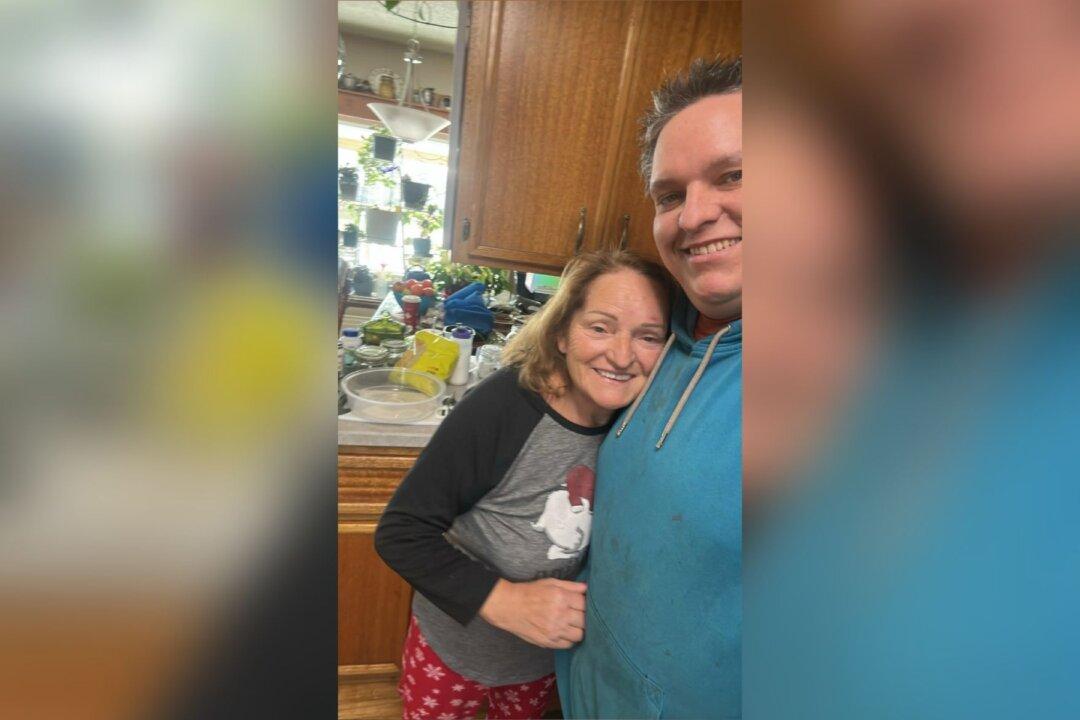WASHINGTON—A public uproar over how veterans are being treated has erupted in the United States, where shock and dismay over 22 suicides per day is reaching an angry boiling point because of a reported government cover-up.
The issue illustrates the longer-term societal consequences for countries engaged in the decade-plus war on terror—including Canada, which is wrestling with its own political controversies involving battle-scarred vets.
The U.S. scandal has mushroomed with news that veterans’ hospitals in different states engaged in document-shredding and double-accounting to conceal unacceptably long wait lists for health care.
There are allegations that 40 former soldiers have died from various ailments while languishing on secret wait lists at a Phoenix veterans’ hospital.
If the angry, profanity-laced tirade this week from comedian Jon Stewart is any indication, the issue is now resonating beyond the mainstream media. The National Journal ran an equally angry piece Tuesday under the headline: “How Dumb Does Obama Think We Are? The Veterans Affairs policy fiasco is magnified by an insulting-public relations strategy.”
The fury in that piece was directed at the White House. The administration had claimed to be taking action by forcing the resignation of a Veterans Affairs official who was already scheduled to resign later this year.
The administration has also called a departmental probe and dispatched the No. 2 White House staffer to Phoenix to investigate separately. The director of the Phoenix Veterans Affairs Health Care system and two other officials have also been placed on administrative leave. Members of Congress have called for hearings, and promised legislation.
President Barack Obama apparently learned about the hospital scheme from the news, and according to his staff, he wasn’t happy.
“The president is madder than hell,” his chief of staff, Denis McDonough, told CBS over the weekend. “And I’ve got the scars to prove it, given the briefings that I’ve given the president.”
The toll from a decade of war will be both human and financial. A Harvard study last year pegged the eventual cost of wars in Afghanistan and Iraq at between US$4 trillion and $6 trillion when medical expenses are tallied up—which amounts to as much as $19,000 for every person in the U.S.
Apples-to-apples comparisons with Canada are hard to come by.
For starters, when Canadian soldiers leave the military, they receive medical treatment through the regular health system. In the U.S., ex-soldiers are treated through the Department of Veterans Affairs.
Also, Canadian military deployments in Afghanistan tended to last six months. As for the U.S., its overstretched military personnel were deployed for one-year stints that were often extended, then repeated, in a rotation that observers say exacerbated the risks to mental and physical health.
Vast Difference in Suicide Stats
Even comparing suicide statistics presents challenges. According to government figures, there were 21 suicides in the Canadian military in the worst year in recorded memory, 2011. In the U.S., there were between 21 and 22 in 2010—every single day.
That’s about 8,000 suicides per year.
But the American figures are calculated broadly, and include ex-military personnel who might not have served for decades and whose suicide might not necessarily be linked to old combat duty. The Canadian figure, conversely, is narrow—so narrow it includes only active Canadian Forces males, and excludes not only women and reservists, but everyone who took their lives after leaving the military.
A report produced by Canada’s Library of Parliament last year pointed to considerable psychological trauma from the Afghan war. Citing a variety of published research, it said 28 percent of soldiers deployed to Kandahar had mental-health issues related to their service.
The Canadian government has been accused of mounting smear campaigns against critics who have complained about services for veterans. One of those people, retired Canadian Forces officer Sean Bruyea, is upset that no one was ever fired for leaking his private medical records.
“There’s just an absolute lack of compassion from bureaucrats and politicians,” Bruyea said in an interview from Ottawa.
“Everyone wants to say we owe a debt (to soldiers)—but no one wants to pay for it.”
The federal government points to almost $5 billion in enhancements in veterans’ benefits since 2006. Much of the money, however, comes from previously existing programs. The variety of benefits offered by a new veterans’ charter includes $1,000 for eligible vets, or their survivors, to get help from an expert in finding civilian employment.
As for mental health care, Canadian Forces ombudsman Pierre Daigle told a Senate committee this year that there’s a significant shortage in mental-health providers in the military—but the problem is one of recruitment, not lack of funds.





